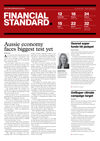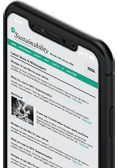Mind the reporting gap: ASX companies urged to improveBY JAMIE WILLIAMSON | TUESDAY, 10 JUN 2025 7:27AMResearch from UNSW finds that while 97% of ASX100 companies report on social topics, most disclosures are inconsistent in quality and difficult to compare due to a lack of standardisation. ASX100 companies are being urged to go beyond simple box-ticking and adopt standardised social impact reporting to properly demonstrate their contributions to change. UNSW said there are material weaknesses in how corporate Australia assesses and reports on social impact, with critical areas like human rights largely unmeasured. It found only 55% of social indicators are reported on by ASX100 companies, based on 22 out of 40 key criteria defined by the Global Reporting Initiative (GRI), the leading sustainability reporting framework. The most commonly disclosed issues were diversity of governance bodies and employees, local community engagement, programs for upskilling staff, and OHS management. UNSW also noted the issues reporting is typically being done on are largely focused on internal metrics and achievements. The least commonly disclosed issues included non-compliance with socioeconomic laws and regulations, non-compliance issues in relation to marketing and labelling, and significant investment agreements and contracts that include human rights. A new report from the Centre for Social Impact at UNSW, The State of 'S' Reporting in ESG: Unlocking Corporate Social Impact Opportunities, also noted a decline in ASX100 companies disclosing social risks between 2023-2024. The university said there are three key gaps Australia's corporate sector must plug. The first is the lack of standardised metrics, while the second is limited value chain disclosure, and the third is the lack of mandatory assurance or audit of information. "Social impact isn't just about internal culture or charitable donations," lead author associate professor Melissa Edwards said. "It's about how a company operates in society - its value chain, its customers, its communities. Without standardised metrics, we're just counting inputs, not measuring outcomes. "We've seen how mandated climate reporting has transformed environmental disclosures, helping to prevent greenwashing through stronger assurance standards. It's time we applied that same level of rigour to social impact. The frameworks are there; we just need to build the systems to support them." Related News |

First Sentier Investors' global head of responsible investment Kate Turner joins The Greener Way to discuss how accounting for the many inter-reactions and flow-on effects of addressing specific sustainability issues can lead to improved outcomes.
ASX-listed Plenti Group has won a mandate from the Western Australian government to help the state accelerate the adoption of batteries.
Despite the raging global trade war, Climate Energy Finance (CEF) is calling for carbon tariffs on some imports and for Australia to lead the way for a regional Asian carbon border adjustment mechanism (CBAM).
Although investors are withdrawing from climate investing due to uncertainty from the aggressive approach by the US President Donald Trump in his pro-fossil fuels and anti-energy agenda, it opens up opportunities further afield.

















